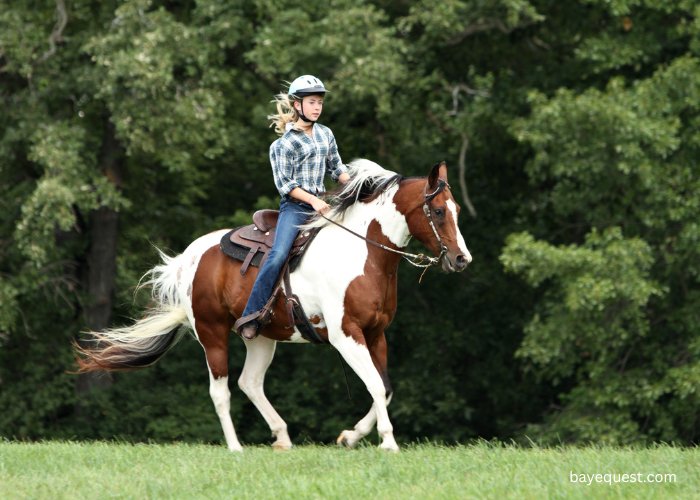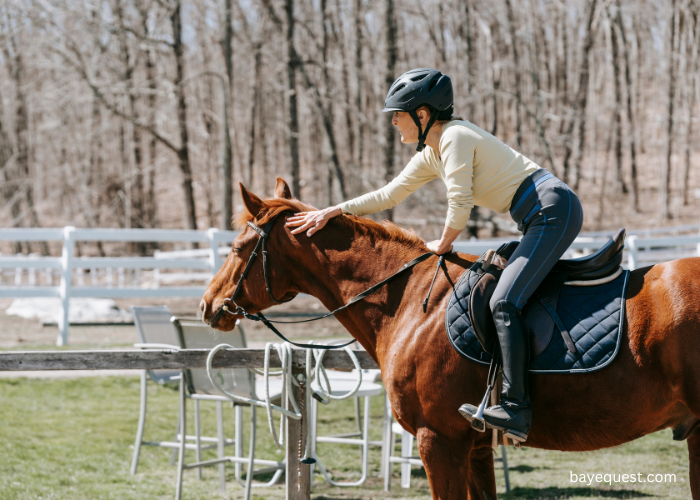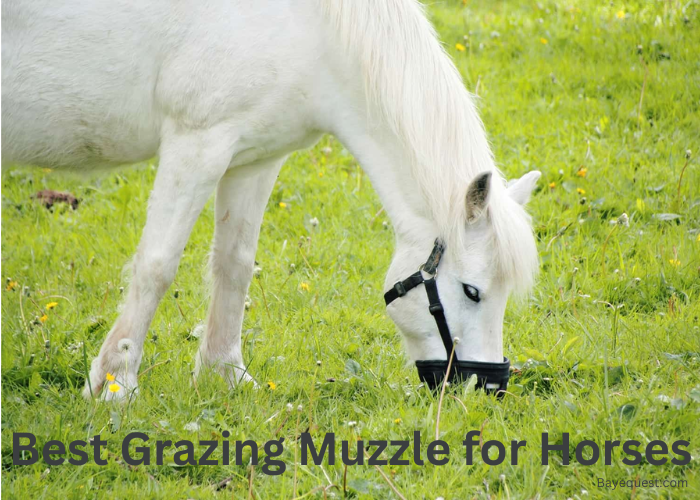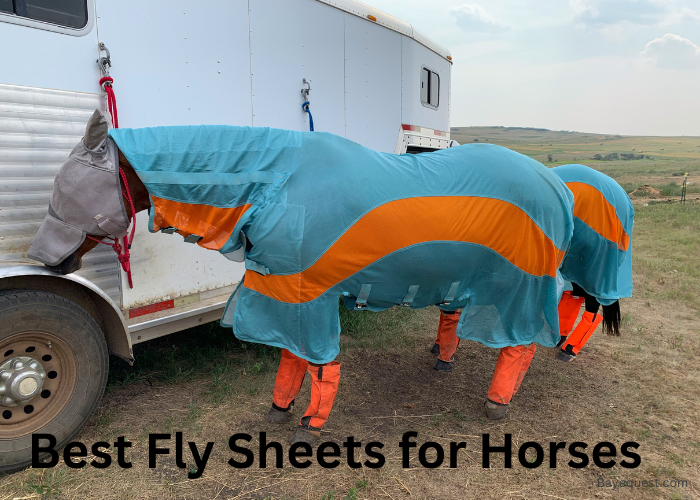Riding a horse after a few drinks might seem like a safe way to get home. No engine, no DUI, right?
Not so fast. The law isn’t always that simple.
In some places, you can be charged with a DUI, even on a horse. In others, it’s not considered the same as driving a car.
It all depends on local laws. What’s legal in one state might be illegal in another.
So, before you saddle up after a night out, let’s look at whether a horse ride could lead to legal trouble.
Can You Get a DUI on a Horse? Key Takeaway
Yes, you can get a DUI for riding a horse while intoxicated in some places. Laws vary by state, but a horse can be treated like a vehicle under DUI rules. Even if DUI doesn’t apply, you could face other charges like public intoxication. Riding drunk is unsafe for both you and the horse.
What is a DUI?
A DUI, or Driving Under the Influence, is a criminal offense involving operating a vehicle while impaired by alcohol or drugs.
It’s illegal to drive when your blood alcohol concentration exceeds the legal limit, which is 0.08% in many places.
DUI also applies if drugs—prescription, over-the-counter, or illegal—impact your ability to drive safely. It’s about keeping the roads safe.
Whether it’s a car, truck, or even a boat, if your ability to control it is affected by substances, you could be charged with a DUI.
How to Get a DUI
A DUI happens when someone drives after drinking alcohol or using drugs.
The police can stop a driver if they notice unsafe driving. Swerving, speeding, or braking suddenly are common signs of impairment.
In most places, a person is legally drunk if their blood alcohol concentration (BAC) is 0.08% or higher.
Some states have lower limits for certain drivers, like commercial drivers or people under 21.
Even if a person’s BAC is below the legal limit, they can still get a DUI if they show signs of impairment.
Officers use breath tests and field sobriety tests to check if a driver is impaired.
A breathalyzer measures BAC, while sobriety tests check balance, coordination, and response time. Failing these tests can lead to an arrest.
A DUI has serious consequences. It can lead to heavy fines, license suspension, or even jail time.
A person may also need to take alcohol education classes or install an ignition interlock device in their car. Multiple DUIs can lead to harsher penalties.
Driving under the influence is dangerous. It increases the risk of accidents, injuries, and death.
The best way to avoid a DUI is to plan ahead. Use a designated driver, take a taxi, or use a rideshare service if you have been drinking.
Is a Horse a Vehicle in DUI Laws?
A horse isn’t exactly a vehicle like a car, but things get tricky when it comes to DUI laws.
In some places, a horse can be treated like a vehicle when considering DUI charges, while in others, it’s not.
It all depends on local definitions of what counts as a “vehicle.” Some laws classify anything used to transport people, even an animal, as a vehicle.
This means you could get a DUI for riding a horse while drunk. However, in other areas, a horse isn’t seen the same way, leading to different legal outcomes.
Dangers of Riding a Horse While Intoxicated
Riding a horse while intoxicated is dangerous for many reasons.
Alcohol or drugs can affect your balance, coordination, and judgment. This makes it harder to control the horse, increasing the risk of accidents.
Horses can be unpredictable, and if your reaction time is slowed, you may not be able to handle sudden movements, which could cause injury to you and your horse.
An intoxicated rider is also more likely to make poor decisions that put the horse in risky situations, such as navigating busy roads or difficult terrain.
This endangers not only you and the horse but also other people around. Riding while under the influence is never worth the risk—it’s unsafe for everyone involved.
Legal Risks and Consequences of Riding a Horse Under Influence
Riding a horse while intoxicated can lead to serious legal trouble.
In many places, you could face DUI charges just like if you were driving a car. This might mean hefty fines, a suspended license, or even jail time.
Even if DUI doesn’t apply, there are other risks. You could be charged with public intoxication, which means you were a danger to yourself or others.
In some cases, riding drunk might lead to animal cruelty charges because you’re putting the horse at risk too.
The consequences can be severe—legal fees, criminal records, and safety issues for you, the horse, and those around you.
Factors Influencing DUI Charges
Several factors influence DUI charges. These can affect the severity of the penalties and whether the charge is classified as a misdemeanor or felony.
Blood Alcohol Concentration (BAC)
A higher BAC usually leads to harsher penalties. In most places, a BAC of 0.08% is the legal limit. A BAC above 0.15% may result in more severe consequences.
Age of the driver
Underage drivers often face stricter rules. Many states have a zero-tolerance policy, meaning any alcohol in their system can lead to a DUI charge.
Prior DUI offenses
A first-time DUI usually has lighter penalties. Repeat offenses lead to increased fines, longer license suspensions, and possible jail time.
Reckless or dangerous driving
Speeding, swerving, or causing an accident while impaired can lead to additional charges. Injuring or killing someone while driving under the influence can turn a DUI into a felony.
Refusing a breath or blood test
Most states have implied consent laws. This means drivers agree to testing when they get a license. Refusing a test can lead to automatic penalties, including a suspended license.
Presence of minors in the vehicle
Driving under the influence with a child in the car often leads to harsher penalties. In some cases, it can result in child endangerment charges.
Type of substance used
Alcohol is the most common cause of DUIs, but drugs also lead to charges.
This includes illegal drugs, prescription medications, and even over-the-counter drugs that impair driving.
Location of the arrest
Some areas have stricter DUI laws. Being stopped near a school, construction zone, or public event can lead to additional penalties.

State-by-State Differences in DUI Laws
DUI laws involving horses can vary a lot from state to state. In some places, a horse can be considered a vehicle, meaning you could get a DUI for riding one while drunk.
For example, California and Kentucky have charged people with DUI for riding horses under the influence.
In Texas, riding a horse while intoxicated also falls under DUI since horses are seen as “conveyances.” Pennsylvania has similar rules—horses can count as vehicles in certain situations.
But other states are different. In Florida, a horse isn’t always treated like a vehicle for DUI, but you could still face charges like public intoxication.
Colorado doesn’t treat horses as vehicles either, but you could be charged with animal cruelty or public endangerment if you ride one while drunk.
Every state has its way of handling this, so the legal outcome really depends on where you are.
Interesting read: Do You Need a License to Ride a Horse on the Road?
Can You Get a DUI on Other Animals?
Yes, you can potentially get a DUI on other animals, depending on where you are. In many places, DUI laws cover all “conveyances,” which can include animals like donkeys, mules, or even oxen.
If you’re riding an animal and are under the influence, you could face DUI charges, just like on a horse.
Laws vary, though, and some states might treat it differently, often depending on whether the animal is being used for transportation or in a public setting.
Regardless, riding any animal while drunk is risky and can lead to legal trouble.
See also: Difference Between Mule and Hinny.
FAQs
Can I report a drunk horse rider to the police?
Yes, you can report a drunk horse rider to the police. Riding a horse while intoxicated can be dangerous to the rider, the horse, and others. Depending on local laws, the rider may face DUI charges or other offenses, like public intoxication or endangerment. It’s always better to alert authorities if you see someone putting themselves and others at risk.
Can you avoid DUI on a horse by staying off roads?
Not necessarily. In many places, DUI laws apply even if you’re not on a public road. Private property, trails, and other public spaces can still fall under DUI regulations depending on the local law. You might also face other charges, like public intoxication or animal cruelty. The safest option is to avoid riding while intoxicated, no matter the location.
Conclusion
So, can you get a DUI on a horse? The answer isn’t always simple. It depends on where you are, but one thing’s clear—it’s risky.
Riding a horse while intoxicated can lead to fines, charges, or worse, injuries to you and your horse. It’s not just about breaking the law; it’s about safety for everyone around.
Next time you’ve had a few drinks, leave the reins alone. Grab a cab, call a friend, or just walk.
Staying safe means staying smart, even if that means keeping both feet on the ground.
Also, check out our article on pin firing horses to learn about this controversial practice, its purpose, and why it’s still debated among veterinarians and horse owners today.








